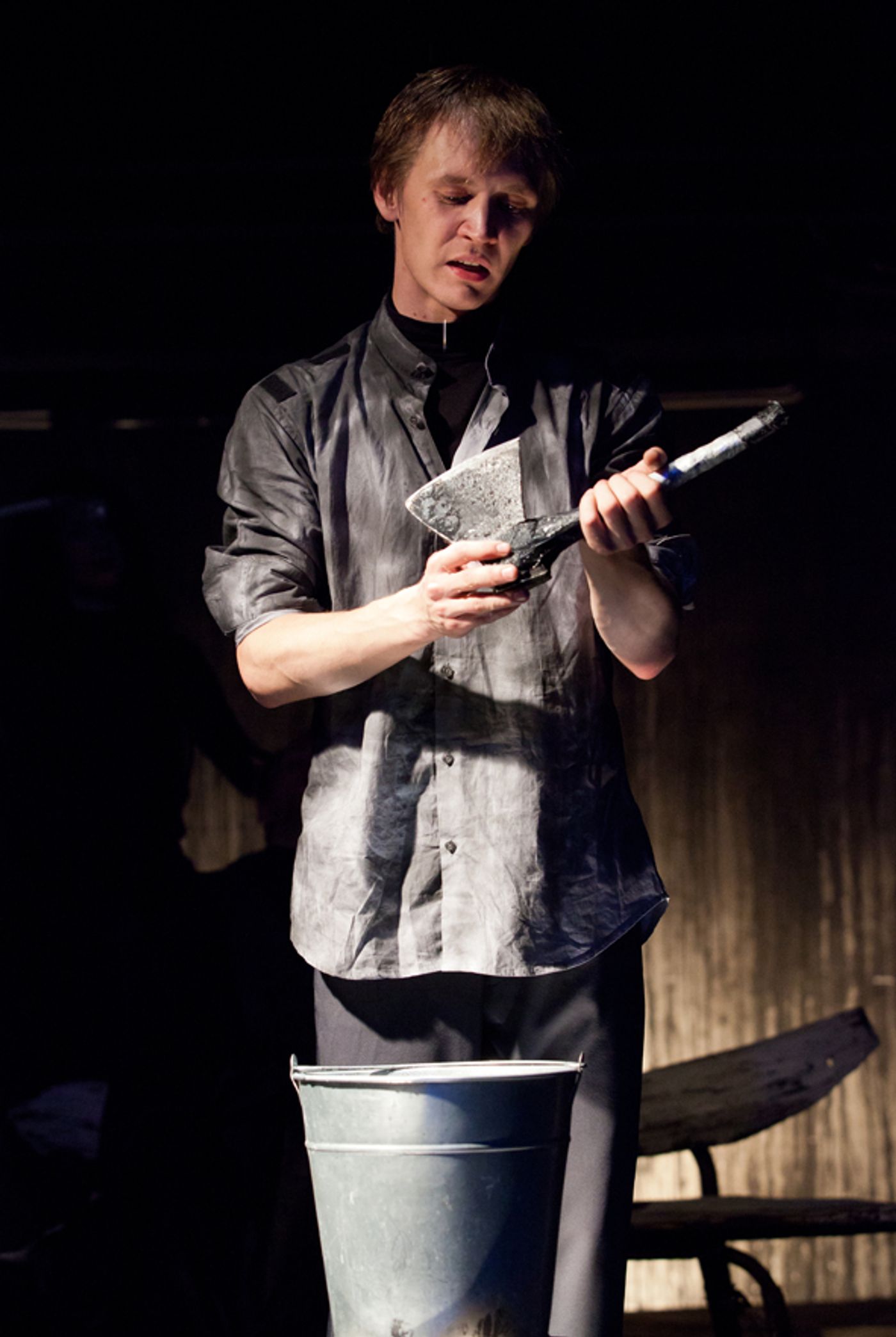Review: CRIME AND PUNISHMENT at The Sobytie Theatre and WAR AND PEACE at The Fomenko Workshop

American scholars in the 1950s asked "Tolstoy or Dostoevsky?" much in the same way Buzzfeed asks its readers today to choose a signature cocktail; it isn't just a matter of taste, they say, but a telling decision that bears insight into the mind of the chooser.
In Moscow right now, this choice has come to life, as two theatre companies stage equally ambitious - but decidedly different, in taste, texture, and focus - theatrical productions of the best-known works of both authors. At the Sobytie Theatre, you can subject yourself to a visceral, minimalistic Crime and Punishment; at the Fomenko Workshop, War and Peace: The Start of the Novel is grand, literary, and patient. (Both, it should be noted, are very long).

Galina Tyunina as Maria Bolkonskaya in
War and Peace: The Start of the Novel
Photo credit: Olga Lopach
Peter Fomenko himself directed War and Peace: The Start of the Novel, with great attention and care to the language of the original text. The dialogue is nearly untouched, and bits of narration are added as well; some characters are privileged to read their own introductions, giggling or cringing at how nakedly they've been exposed by Tolstoy's prose. Fomenko's admiration for Lev Nikolaevich is boundless, and the joy he experiences reading War and Peace is so powerful he has to share it with the characters themselves. This production does not credit a playwright, only Tolstoy as the author and Fomenko as the director, as if the adaptation is pure, with no interpretation, no fingerprints smudging Tolstoy's perfect words. The play is the novel, just in another format.
Over at the Sobytie Theatre, Hermann Pinkus and Maksim Perelygin have mutilated Dostoevsky's original text, pulling from it themes, characters, and images, but sparing the original format no mercy. The set is minimal, the cast is small. Action is not depicted, but suggested, usually with a visceral brutality only possible on the stage. Throughout the production, water drips from the ceiling; in one moment, it purifies; in another, it tortures. It may suggest water, or guilt, or addiction; on this stage, nothing is abstract, every emotion and theme takes a physical form, usually one as upsetting and brilliant as the notion itself. Reading the text of Pinkus's Crime and Punishment would be like reading the specs of an atomic bomb: instructive, but utterly inadequate to reap the devastation intended by the creator.
Is a play a text, or an event? Is it principally composed of language, or action? Can a novel be simply adapted, or must it be transformed? George Steiner, who kicked off the Tolstoy VS. Dostoevsky craze some 60 years ago, stressed that neither was better than the other, but that your preference "commits the imagination to one or the other of two radically opposed interpretations of man's fate, of the historical future, and of the mystery of God."
Both of these plays are excellent, but most people will prefer one over the other, and this preference will reflect, I think, not just their interpretation of big questions, but of the purpose and power of theatre as well.
Note: The Fomenko Workshop offers English-language subtitles at no additional cost for War and Peace: The Start of the Novel. Learn more here.
Reader Reviews
Videos

